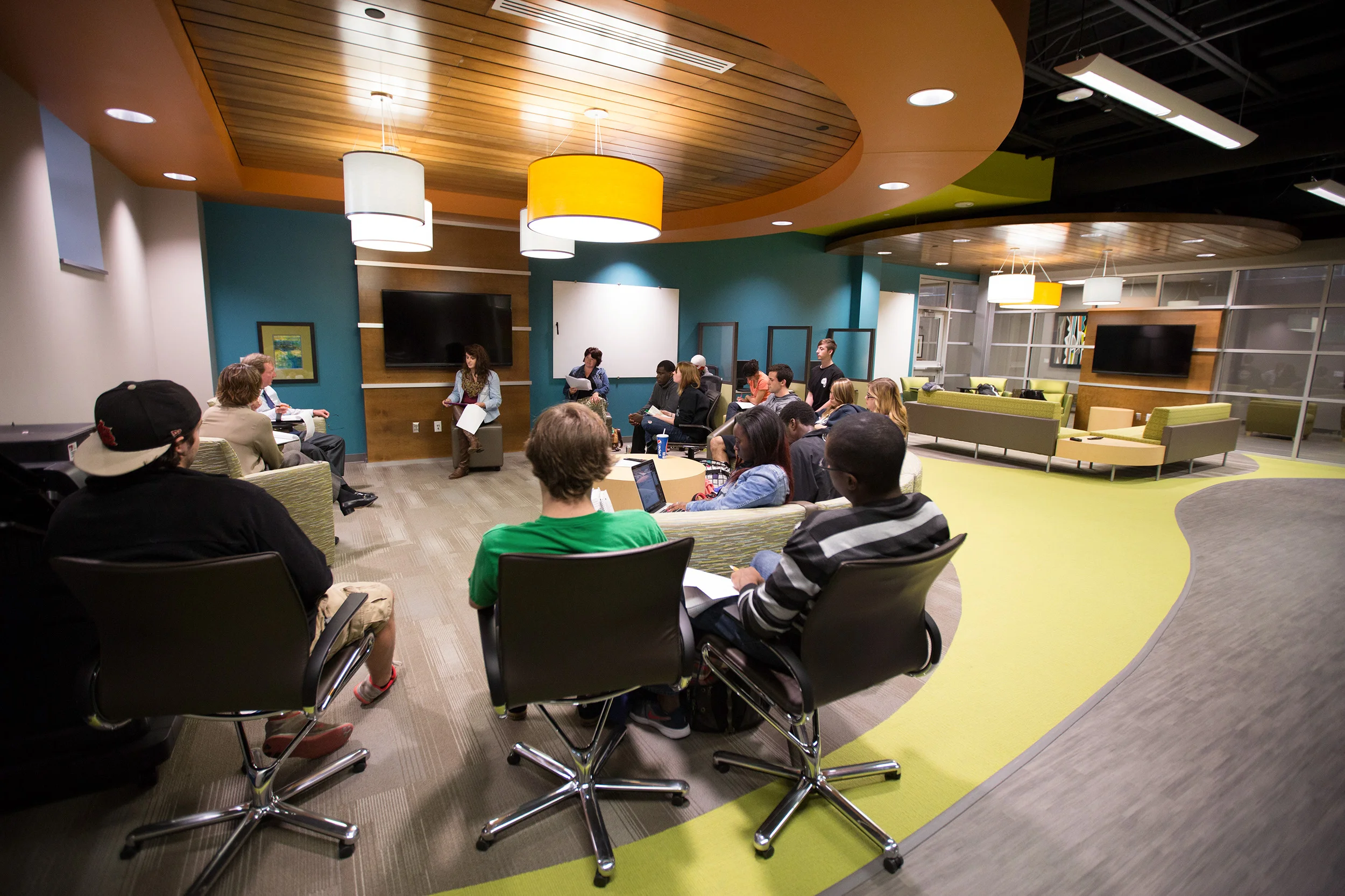Frequently Asked Questions for Questa’s Traditional and Contemporary Scholar Programs
Q: What is the difference between Questa’s Traditional and Contemporary Scholar Programs?
A: Questa defines a Traditional Scholar as a senior in high school starting a traditional track of college courses beginning in the fall or current college freshmen continuing their college studies in the fall. Contemporary Scholars are all other students who are starting their college studies throughout the year, current students returning to college, or adult learners. All scholars are students who are pursuing an undergraduate degree or certification, whether that be a bachelor’s, associate’s, or certificate. Funding may vary per program and per degree track.
Q: Do I need to be from Northeast Indiana to receive Questa funding?
A: Individuals who are interested in applying for Questa funding should either be a resident of Northeast Indiana or attending a high school in Northeast Indiana. Students from Northeast Indiana who are pursuing a degree at an accredited college or university in Indiana are also eligible to apply. Northeast Indiana includes the following counties: Adams, Allen, DeKalb, Huntington, Kosciusko, LaGrange, Noble, Steuben, Whitley, Wabash, and Wells County.
Q: To apply as a Questa Scholar, what if I live in a neighboring county but still graduated from an Adams, Allen, DeKalb, Huntington, Kosciusko, LaGrange, Noble, Steuben, Whitley, Wabash, and Wells County high school?
A: Traditional students (high school seniors planning on starting in the fall and college freshmen) are eligible to apply. All other students are eligible to apply based on their primary residence.
Q: What is a financial aid notification and where can I find it?
A: The financial aid notification is received from your college choice once you have applied and are accepted. This information can be found on your college portal under the financial information section. The financial aid award letter contains the cost of attendance for you for the upcoming semester/year. Additionally, it will show any grants, scholarships, or other loans that you may receive. If you have not received your financial aid award information you may substitute a copy of the standard cost of attendance from the college website.
Q: Are there minimum standards that must be met?
A: Traditional students must graduate high school with a minimum 2.5 cumulative GPA or higher on a 4.0 scale and have a financial gap in the cost of attendance less the family's financial ability.
Contemporary Scholars must have a minimum 2.5 cumulative GPA in college, or a strong recommendation from an employer, and have a financial gap in the cost of attendance less the financial aid available.
Q: Is there a minimum/maximum financial need to be eligible for Questa funding?
A: Questa Scholar Program applications require an applicant to demonstrate financial need. Questa considers financial need based on several factors, including your Student Aid Index (SAI), which is issued to you upon submitting your FAFSA.
There are exceptions when a student’s family financial circumstances and needs are not accurately reflected in their FAFSA or when a student’s major or residency matches a specific funding opportunity. We encourage you to provide additional information regarding your financial circumstances on your submitted application.
Q: What degrees are eligible under the Traditional or Contemporary Scholar Programs?
A: An undergraduate bachelor, associate or certification program would qualify.
Q: If I earn an associate degree and then decide to pursue a bachelor’s degree, may I continue as a Scholar?
A: Scholars in our Traditional Program are eligible to continue with a bachelor’s degree if they continue immediately after completing their associate degree and if funding is available. The scholar must discuss the possibility with a Questa staff member. However, a scholar in any other program must reapply to be considered for additional funding.
Q: How much will Questa Education Foundation lend to me?
A: Traditional Scholars may borrow up to $5,000 per year (with a maximum of $2,500 per semester) for up to 4 years. Contemporary Scholars may receive up to $2,500 as a part time student or $5,000 as a full-time student annually.
Q: What if it takes longer than four years to complete my degree?
A: The Traditional Scholars Program is approved for four consecutive years or eight consecutive semesters. Students enrolled in degree completion programs that require more than four years of study will be invited to apply for deferment of loan repayment while they complete their additional semesters of study for the intended degree. No guarantees of deferment are made, and a request will need to be made to a Questa staff member to be considered for deferment.
Q: Am I able to pursue a master's degree once I complete my bachelor's degree?
A: Yes, once you complete your bachelor's degree you may continue onto a master's program. You will be invited to apply for deferment of loan repayment for up to two years as you complete your masters. Deferment is not guaranteed.
Q: What does low interest mean?
A: Questa assigns a low fixed interest rate yearly for each scholar class. The interest rate is based upon prior year’s federal student loan rate. Interest does not begin until a scholar has graduated or leaves the program. Interest is paid only on the portion that the scholar is responsible for repaying back to Questa (less forgiveness and any partnership credit).
Q: After graduation, how do I prove that I work and reside in Northeast Indiana?
A: Annual proof of residency and employment will be required in the form of a W-2 statement or pay stub identifying the county in which you live and work. A Questa staff member will reach out with you annually to complete your live/work residency form.
Q: Do you know of any other sources of financial aid or resources?
A: Yes! Questa continues to build a list of resources outside of our own funding opportunities. Take a look by visiting our Financial Aid Resources page!
Q: Can I use AI tools to help prepare my application essays?
A. Questa encourages applicants to explore the use of generative artificial intelligence (GAI) tools including ChatGPT, Grammerly, AI Essay Writer, AI Writer, Writesonic, and Essaygenius as a resource. These tools may be used to help with the initial outlining and drafting of application essays but should NOT be used for the final essay itself. It is the applicant's responsibility to assess the validity and applicability of any GAI output that is generated.
We want to read your answers in your own words. Violation of this policy may result in a withdrawn application.




